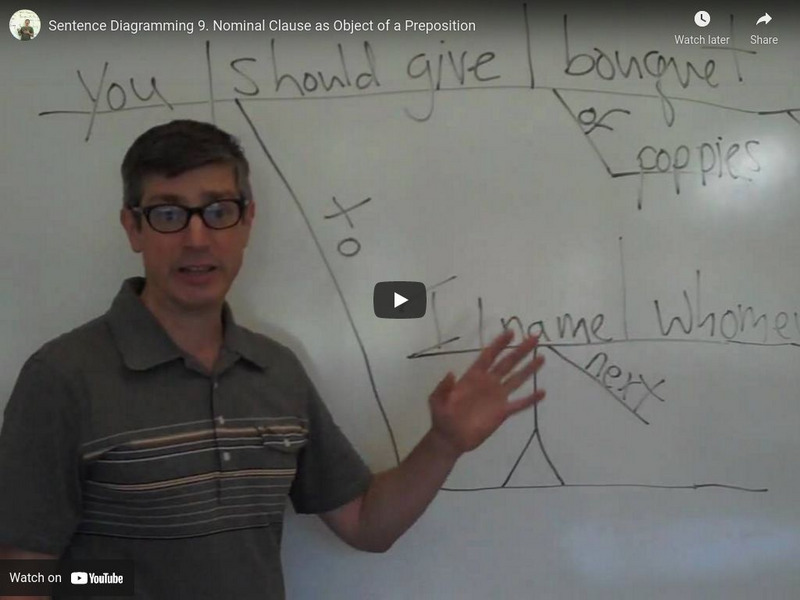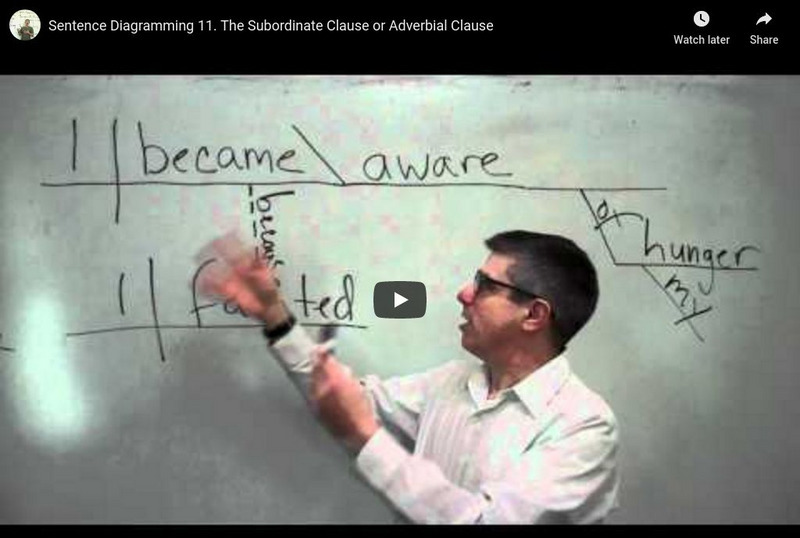Learn German with Herr Antrim
Past Perfect (Pluperfect) - 3 Minuten Deutsch #48 (English) - Deutsch lernen
In this video I explain how to use and form the past perfect (Pluperfect) in German.
Learn German with Herr Antrim
GERMAN SEPARABLE VERBS - Learn German Grammar Worksheet Explained
What are German separable verbs? How do you use German separable verbs? How do prefixes change the meaning of German verbs? Herr Antrim has all of these answers and more in this video. Follow along as Herr Antrim explains one of his...
Professor Dave Explains
Subjunctive and the Sequence of Tenses in Italian: Concordanza dei Tempi
Subjunctive tenses.
Learn German with Herr Antrim
Future Perfect Tense - 3 Minuten Deutsch #49 (English) - Deutsch lernen
This is a video about the future perfect tense (Futur 2) in German.
Professor Dave Explains
Imperfect Subjunctive Tense in Italian: Imperfetto Congiuntivo
Subjunctive tenses.
Professor Dave Explains
Subjunctive With Conjunctions in Italian: Congiuntivo con Cogiunzioni
Subjunctive tenses.
Cerebellum
English Punctuation: Dependent Clauses and Commas continued
Learn how to use commas for fun and profit, and how to make colons work for you. We continue looking at pauses in a sentence, with a focus on dependent clauses and how to support them. This is part 1 in the series: 'English Punctuation...
Learn German with Herr Antrim
How to Use Separable Prefix Verbs (trennbare Verben) in German
Learn how to use the separable prefix verbs in German (also known as “trennbare Verben”) with this German grammar lesson. In this video I explain when to separate the prefix from a German verb and when not to. I also show you a list of...
Englishing
Adverbial Clauses: TIME CLAUSES (after, long before, while, the next time, the last time, etc.)
Mr. P. starts this lesson by describing what a main and a subordinating clause are. He then talks about conjunctions and lists some examples. Finally he delves on subordinate clauses. There are three main kinds of subordinate clause:...
Learn German with Herr Antrim
How to Use Subordinating Conjunctions in German: dass, weil, ob, wenn & more!
Learn how to use the German subordinating conjunctions dass, weil, ob, wenn and a whole lot more with this intermediate German lesson. If you really want to bump up your German skills, mastering these subordinating conjunctions will...
Curated Video
KS2 Primary English Age 9-13 - Vocabulary: Subordinating Conjunction - Explained
SchoolOnline's Primary English videos are brilliant, bite-size tutorial videos delivered by examiners and skilled teachers. Ideal for ages 9-13, they cover every key skill in English Reading and Writing that students need to master in...
The Learning Depot
Adverb Clauses: An Adverb Clause is a Part of Speech Classed as an Adverb
Adverb clauses also known as adverbial clauses function as one part of speech: the adverb. We know that an adverb answer modifies a verb, an adjective, and another adverb. It answers the question “when?”, “where?”, “how?”, “why?” “to...
The Learning Depot
What is a Conjunction? 3 Types of Conjunctions | Coordinate | Subordinate | Correlative
In this lesson, you will learn about the three types of conjunctions: coordinate, subordinate, and correlative. You will learn about the acronyms FANBOYS, THAMOS, and SWABITs.
Wonderscape
Using Coordinating and Subordinating Conjunctions
In this video, the teacher explains the concept of conjunctions and how they are used to connect different parts of a sentence or two separate sentences. The video covers both coordinating conjunctions, which connect equal parts of a...
Yossarian the Grammarian
Sentence Diagramming 9: Nominal Clause as Object of a Preposition
This video lesson from Yossarian the Grammarian explains how to diagram a sentence that has a nominal clause that functions as an object of a preposition. [3:23]
Yossarian the Grammarian
Sentence Diagramming 7: The Nominal Clause as Subject
This video lesson from Yossarian the Grammarian explains how to diagram a sentence that has a nominal clause that functions as the subject of the sentence. [2:16]
Yossarian the Grammarian
Dependent Clauses: English Grammar Lesson
This video lesson from Yossarian the Grammarian explains the following dependent clause types: noun clauses, adjective clauses, and adverb clauses. [8:16]
Yossarian the Grammarian
Sentence Diagramming 8: Nominal Clause as Direct Object
This video lesson from Yossarian the Grammarian explains how to diagram a sentence that has a nominal clause as a direct object. [3:10]
Yossarian the Grammarian
Yossarian the Grammarian: Sentence Diagramming 11: The Subordinate Clause
This video lesson from Yossarian the Grammarian demonstrates how to diagram a sentence with a subordinate clause.
Yossarian the Grammarian
Comma Splices, Independent Clauses, and Subordinate Clauses
This video lesson from Yossarian the Grammarian explains how to avoid comma splices when working with independent and subordinate clauses. [6:42]
Khan Academy
Khan Academy: Dependent and Independent Clauses
An independent clause is a sentence that has a subject and a verb and requires no extra information to understand. Dependent clauses, which start with subordinating conjunctions such as 'while,' 'that,' or 'unless,' give background...
Khan Academy
Khan Academy: Complex Sentences
Complex sentences are simple sentences with dependent or subordinate clauses added to them. Paige and Rosie explain how to spot them and use them in this video.
Khan Academy
Khan Academy: Relative Pronouns
We use the relative pronouns to connect clauses together, like 'the man *who sold the world* is coming over for dinner.' David, KA's Grammar Fellow, explains.









